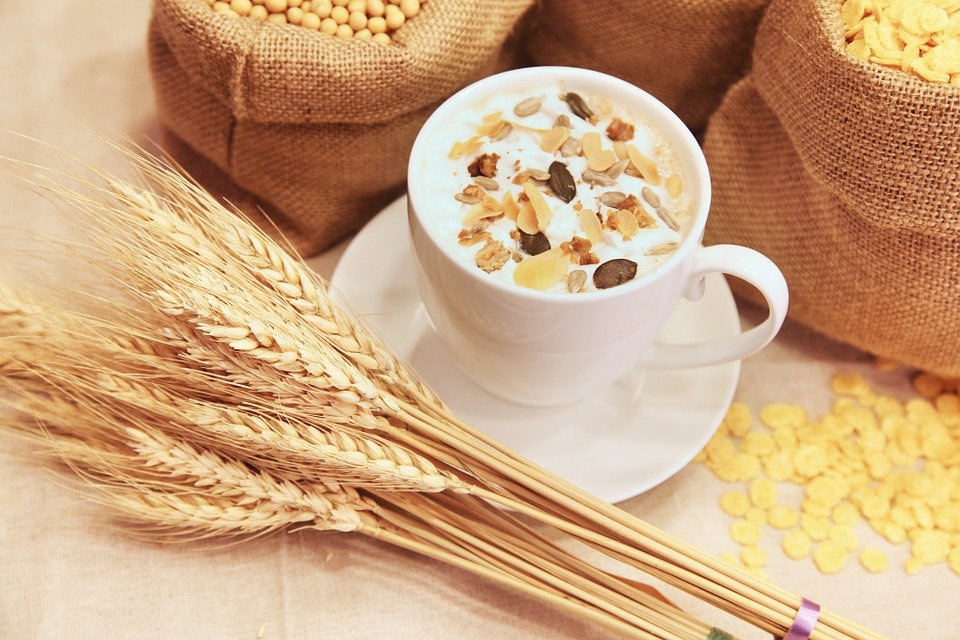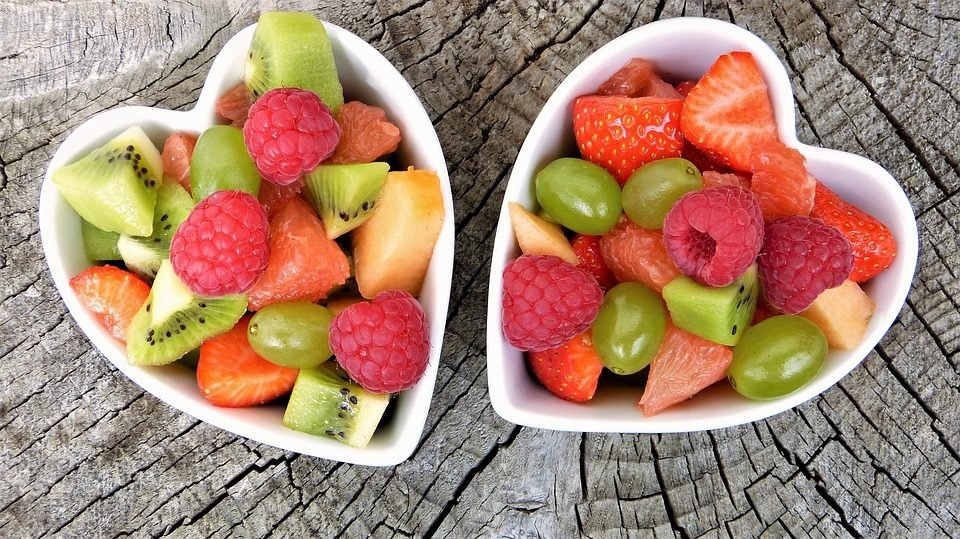Following a diet with the right amount of fat and calories is a significant part of taking care of your heart and some specifically attractive in this regard due to their nutrient profiles. A rich diet consisting of fruits and vegetables, low-fat dairy products, whole grains, nuts, poultry, and fish. These choices are worthy of the grocery list. Here are a few foods for a healthy heart.
Popular Foods for a Healthy Heart
Red Apples: Apples are known for lowering the risk of heart disease. This is because they consist of several different compounds that enhance various factors associated with heart health. For instance, they consist of phytochemical known as quercetin which plays the role of a natural anti-inflammatory agent. Quercetin may also help in preventing blood clots.
Apples consist of soluble fiber, which may lessen bad cholesterol and polyphenols. These are popular for their antioxidant effects. One polyphenol, known as flavonoid epicatechin, can assist in lowering the blood pressure. Other flavonoids may decrease the risk of stroke and reduce bad cholesterol.
Apples come in different delicious varieties and are transportable. Have an apple with a handful of almonds or walnuts in the form of a healthy snack or else, you can include sliced apples in your salad.

Olive Oil: Olive oil improves the risk of cardiovascular, most probably by lessening LDL cholesterol and raising the levels of HDL cholesterol, and it is a vital component of a Mediterranean diet. You can use olive oil for cooking or make an excellent dip that you can enjoy with whole-grain bread by pouring a bit of olive oil in a small container and add balsamic vinegar and sprinkle some oregano over it.
Avocados: Avocados are rich in monounsaturated fatty acids like olive oil. Along with this, they are fully loaded with phytochemicals and vitamins that play the role of antioxidants for protecting your heart along with other parts of the body.
Oleic acid is the monosaturated fatty acid present in Avocados. It is popular for lessening inflammation all over the body, mainly in the heart. Avocado oil is safe and healthy for cooking purposes as the fats present in the oil are resistant to heat-induced oxidation, a procedure that makes certain fats bad for you once they reach a certain temperature.
Green vegetables: Green veggies are packed with compounds that are beneficial for your vascular system and heart. They are also rich in fiber content, which can lessen bad cholesterol and at the same time reduce the chances of heart disease. Leafy vegetables taste great and have the low-calorie content. Use fresh spinach leaves in the form of green salad or you can serve them as a side dish. You can enjoy broccoli with a veggie dip as a snack.
Whole grains: Whole grains offer minerals, fiber, and vitamins that will keep your heart healthy and lessen triglycerides and LDL-cholesterol.
Oats are worth it. It consists of a soluble fiber known as beta-glucan that helps in reducing LDL cholesterol and cholesterol. Reports have proved that whole grain oats are the most effective whole grain for lessening cholesterol.
You can enjoy an oatmeal breakfast with a bit of brown sugar and lots of walnuts and strawberries. Cold cereals made with oats are a good option for you. Ensure that you choose brands that do not add extra sugar to it.
Berries: Berries are considered as the best foods for a healthy heart. Blueberries, raspberries, and strawberries are jam-packed with vital nutrients that play a vital role in the heart’s health. Berries are rich in antioxidants like anthocyanins, which protect against the inflammation and oxidative stress that develops heart disease.
For instance, one study in 27 grownups with metabolic syndrome proved that drinking a beverage made of freeze-dried strawberries for eight weeks lessened “bad” LDL cholesterol by about 11%. Metabolic syndrome is a group of conditions that can cause heart disease. Another study found that eating blueberries regularly can improve the functioning of cells that line the blood vessels, which helps in controlling blood clotting and blood pressure.
In addition, an analysis of 22 studies demonstrated that eating berries reduced “bad LDL cholesterol, body mass index, systolic blood pressure, and few markers of inflammation. Berries can be a rewarding snack or a tasty low-calorie dessert. Try to add a few different kinds of berries to your diet to take benefit of their special health benefits.
Fish oil and fatty fish: Fatty fishes like mackerel, salmon, tuna, and sardines contain omega-3 fatty acids. These are good for the heart. In a study of 324 people, eating salmon 3 times a week for continuously eight weeks decreased diastolic blood pressure significantly. Another study showed that eating fishes over the long term lowers levels of total cholesterol, fasting blood sugar, blood triglycerides, and systolic blood pressure.
In addition, each 3.5-ounce decline in weekly fish consumption was related to a 19% higher probability of having an extra risk factor for heart diseases, like high blood pressure, obesity, or diabetes. If you do not like seafood, you can have fish oil for getting your regular dose of omega-3 fatty acids. Fish oil supplements reduce blood triglycerides, boosts arterial function, and lessens blood pressure. You can even have other omega-3 supplements like algal oil or krill oil.

Restrict unhealthy fats: Reducing the intake of saturated and trans fats is a significant step to reduce blood cholesterol. It lowers the risk of coronary artery disease too. A high blood cholesterol level can build up plaques in your arteries, known as atherosclerosis. This can increase your risk of stroke and heart attack. You can decrease the amount of saturated fat in your diet by taking less meat or choosing lean meats that have less than 10 percent fat. You must consume less margarine and butter. Also, you can use low-fat substitutions for a healthy diet for your heart. For instance, top your baked potato with a low-sodium salsa and low-fat yogurt instead of butter, or use sliced fruits or low-sugar fruit spread on your toast rather than using margarine.
You must also check the food labels of certain foods like cakes, cookies, chips, and frostings. Some of these that have a “reduced-fat” label may contain oils with trans-fat. When you use fats, always choose monosaturated fats, like canola oil or olive oil. Polyunsaturated fats, generally found in a few fish, nuts, avocados, and seeds are a good choice for a healthy heart. When used instead of saturated fat, polyunsaturated and monosaturated fats may help in lowering your blood cholesterol level. But moderation is important. All these kinds of fat are high in calories.
A simple way to add fiber and healthy fat to your diet is powder flaxseed. Flaxseed is small brown seeds that are high in omega-3 fatty acids and fiber. Several studies have found that flaxseeds can help lower cholesterol levels in some, but more research is required in this regard. You can powder the seeds using a food processor or coffee grinder and mix it with apple sauce, hot cereal, or yogurt.
Dark chocolate: It is beneficial for your heart’s health. The more the percentage of cocoa, the better. If you love milk chocolate, start with chocolates that have at least 70% cocoa.
Beans: Beans are one of the popular foods for a healthy heart. It consists of resistant starch, which avoids digestion and is fermented by the useful bacteria in your gut. As per some animal studies, resistant starch can boost the heart’s health condition by lessening the blood levels of cholesterol and triglycerides. Several studies have shown that eating beans can lessen certain risk factors for heart illness.

